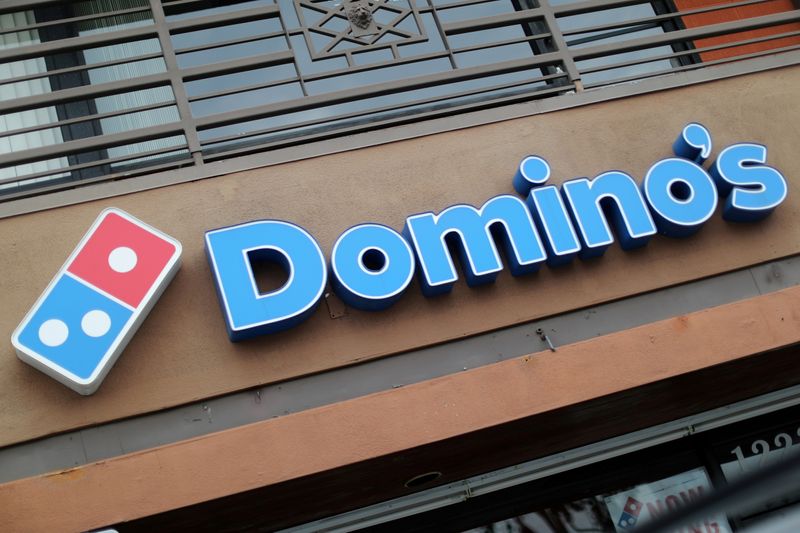RBC (TSX:RY) Capital Markets has adjusted its outlook on Domino's Pizza (NYSE: NYSE:DPZ) by reducing the stock's price target to $490 from the previous $500, while keeping an Outperform rating on the shares.
The adjustment follows the company's third-quarter results for 2024, which showed revenues slightly missing expectations by 1.6%, despite earlier indications from management of a potentially softer performance.
The report from RBC Capital highlighted that Domino's Pizza is continuing to expand its market share in the United States, even amid challenges such as lower-income consumer headwinds and rising competition.
However, the company's international growth has been hampered by both general economic conditions and specific issues in regions such as Europe, Asia, and the Middle East. Despite these challenges, the company's market share remained stable during the quarter.
Domino's management has provided guidance for 2025, anticipating continued international challenges. Consequently, they have adjusted comparable store sales forecasts downward and are withholding guidance on new store openings due to limited visibility. RBC Capital has revised its estimates accordingly and cites a slightly lower multiple as the reason for the reduced price target.
The firm reaffirmed its Outperform rating, noting that Domino's stock is currently trading around 10% below its historical enterprise value to earnings before interest, taxes, depreciation, and amortization (EV/EBITDA) valuation. This valuation adjustment takes into account the reset expectations for international operations and the company's ability to maintain expense flexibility to support profit margins.
In other recent news, Domino's Pizza's financial performance has been the subject of several adjustments by various analyst firms. The company reported third-quarter earnings per share of $4.19, exceeding the estimated $3.65.
However, it saw a 3% increase in U.S. same-store sales, falling short of the projected 3.6% increase, and a 0.8% increase in international sales, missing the anticipated 2.9% growth. Jefferies trimmed the price target for Domino's to $450 while maintaining a Hold rating.
TD (TSX:TD) Cowen held its Buy rating and a price target of $475, emphasizing Domino's strong strategic approach. BTIG reduced the stock's price target to $500 from the previous $580, but still recommended a Buy rating.
Evercore ISI maintained its Outperform rating with a steady price target of $480, while Citi revised its price target for Domino's shares to $440 from the previous $450 while maintaining a Neutral rating. Goldman Sachs (NYSE:GS) held a Buy rating on Domino's shares with a price target of $515.
InvestingPro Insights
Domino's Pizza's financial health and market position offer additional context to RBC Capital's analysis. According to InvestingPro data, Domino's boasts a market capitalization of $14.3 billion and a P/E ratio of 25.4, reflecting investor confidence despite recent challenges. The company's revenue growth of 2.28% over the last twelve months and a more robust 7.14% growth in the most recent quarter align with RBC's observation of continued market share expansion in the U.S.
InvestingPro Tips highlight Domino's strong dividend history, having raised its dividend for 11 consecutive years and maintained payments for 13 years. This consistent shareholder return policy underscores the company's financial stability, even as it navigates international headwinds. Additionally, Domino's liquid assets exceeding short-term obligations support RBC's view on the company's ability to maintain expense flexibility.
While RBC adjusted its price target, it's worth noting that the InvestingPro Fair Value for Domino's stands at $398.37, with analyst targets suggesting a fair value of $477.5. These figures provide additional perspectives on the stock's potential, complementing RBC's $490 target.
For investors seeking a deeper dive into Domino's financial health and market position, InvestingPro offers 8 additional tips, providing a more comprehensive analysis to inform investment decisions.
This article was generated with the support of AI and reviewed by an editor. For more information see our T&C.
